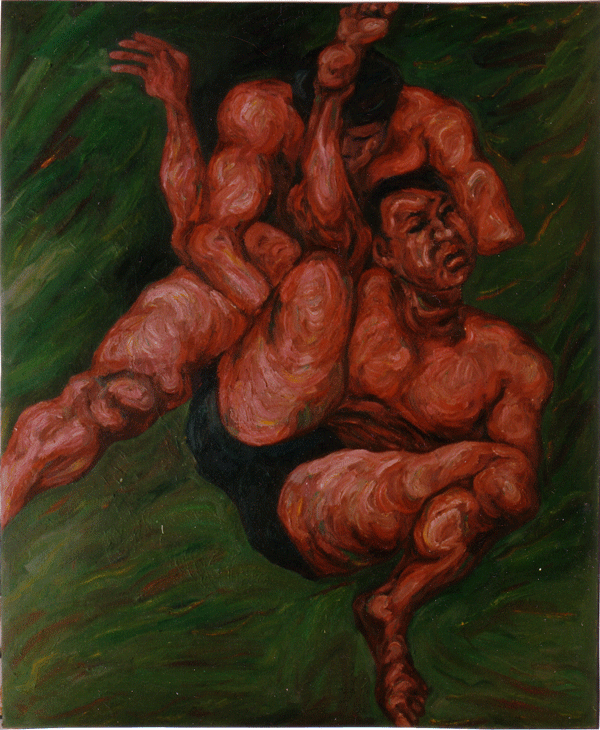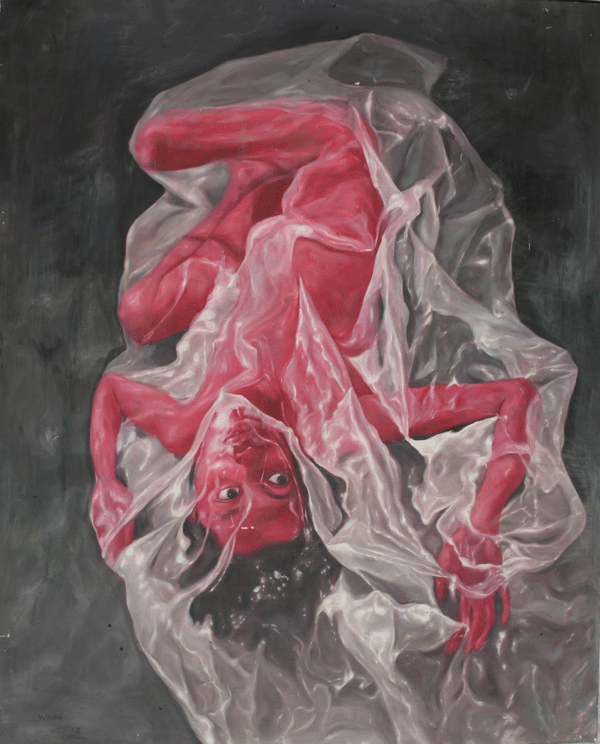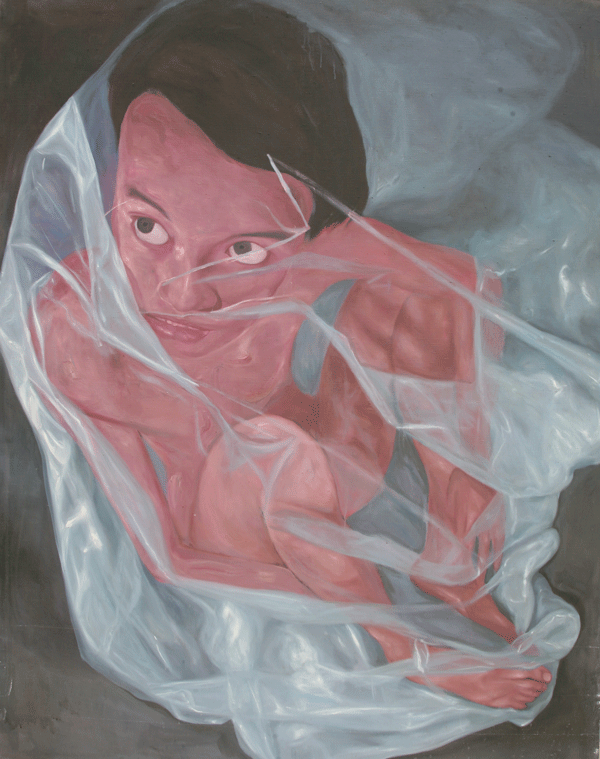Interview with Hughes Scholar Zhang Fang
Zhang Fang
LRCCS Hughes Scholar
In this edition of the LRCCS Spotlight Series, I sat down with LRCCS Hughes Scholar Zhang Fang. She discusses her journey to becoming a highly influential cultural attaché in the Chinese contemporary art world, her relationship with her husband, contemporary artist Wang Qingsong, and some of her work at UM.
Interview conducted and edited by Eric Couillard
Couillard: I’m curious to know about your early life. Where do you call home?
Zhang Fang: I was born in Shandong province, and in ’72 my family moved to Inner Mongolia. I stayed in Inner Mongolia for two years after graduating from college in 1992. I call where my mind and soul stay as my home. So my home is kind of celestial and spiritual, though close to my family. Nowadays social media is so convenient. You don’t feel the spatial and temporal differences.
Couillard: What did you do right after college?
Zhang Fang: I was working as a teacher in Inner Mongolia Poly-technic University. We were assigned 24 hours weekly of teaching. I had more than 100 students at a time, teaching in big auditoriums – with no microphone or anything, just my voice. I got really fed up by that work – I couldn’t teach the things I wanted, just had to teach what the school required of me. It was incredibly repetitive, and many of the students would copy off their friends taking the same class with different teachers. I was so bored that I couldn’t take it. So in ’94 I went to Beijing for graduate studies at Foreign Affairs College.
Couillard: What did you study for grad school?
Zhang Fang: I studied translation for foreign diplomacy. Due to constraints by the former university, I decided to come to the US in ’98 for pursuing another M.A studies in international affairs at the University of Notre Dame.
Couillard: How do you answer the question “What do you do?”
Zhang Fang: It’s tough to say. I’m a mother of three children. I’m the wife of a well-known artist, Wang Qingsong, so I do a lot to help him. So I am a professional in many ways. But I always rely on myself. I’m proud of myself because I never quit. Ever since college I’ve worked all kinds of odd jobs so I could remain independent – I stopped relying on my parents when I was 21. I do translating and interpretation – sometimes for big companies like Bausch & Lomb, or for art magazines. I teach contemporary Chinese art to foreign students from American universities during their summer programs. Editor's note - Click here to find the first six pieces of Zhang Fang's essay series titled "China’s Long March: Ten essays on Chinese contemporary art"
Couillard: Are you teaching a class right now at UM?
Zhang Fang: Yes, I created a new course at Stamps on Chinese contemporary art. I really enjoy teaching here, and there’s so many great resources, especially the library.
Couillard: What else are you doing at UM?
Zhang Fang: There’s a major biennial celebration in Chongqing happening in April 2017, and I’m helping to find foreign artists, working with one of the chief curators, a Nigerian-based women, and developing an outreach program for the Biennial to promote it internationally. Locally, I’m working on organizing a show for Wang Qingsong and He Yunchang, which should be happening in the fall. Both artists are very different – He Yunchang is a performance artist who deals with private explorations of endurance, whereas Qingsong works with large sets, models, and installations for his shoots. So I am collaborating with Robert Adams on this exhibition, entitled China in Its New Hat: Private vs. Public. There will also be a symposium.
Couillard: When did you meet your husband?
Zhang Fang: When I was in the foreign affairs college in Beijing in ‘96, I had a job interpreting for a group of people who wanted to interview Chinese artists for an exhibition in Denmark. I was the lucky one to be chosen. Within a month, we visited about 50 well-known artists spread around Beijing, and Qingsong was one of them.
Couillard: Were you interested in art before then?
Zhang Fang: I always had a creative inclination, but this interpretation job really got me started in that world. I had come from a relatively tame background, and meeting all those artists opened up my eyes. Wang Qingsong was painting people nude, faces wrapped in plastic, with these bright red backgrounds. And he told me these paintings were like his life, being restricted from speaking up, though seeing clearly through the plastic what's going on. These paintings were representing his ideas. And I found it very true to myself.
Some of Wang Qingsong's early paintings, as described by Zhang Fang above
Couillard: Did the two of you hit it off right away?
Zhang Fang: It took some time, because at the time we met, I was already planning to come to the US. We started dating about two months after our first encounter. And a year after that I came to the US to get a master’s degree in peace studies at Notre Dame. I stayed another year at Notre Dame for my Ph.D program in Economics, but in 2000, I came back to help Qingsong.
Couillard: It seems like your life is very unique and interesting. What do you think shaped you to be that way?
Zhang Fang: Well, firstly I enjoy this kind of life. Freedom and flexibility are the two dominant forces that keep me interested in art. Character-wise, I owe much of my temperament to my mom – she’s very positive and happy, but she also taught me to be on alert at all times. She grew up as a farmer and was illiterate, and was incredibly hard working. She built our house from the ground up when we moved to Inner Mongolia. So I can enjoy a very simple life and make complex things work within the possibilities.
Couillard: What would you offer to people who want to live similarly non-mainstream lives?
Zhang Fang: I think the important thing is to trust yourself. If you trust yourself, you’ll find a means to support any lifestyle. Growing up, I was never rich and had to work hard to support myself, but I never worried about money. I knew that in the end it would work out, and that’s how I was able to keep going.
Thanks for reading! Stay tuned for an interview with Wang Qingsong, coming up next.




